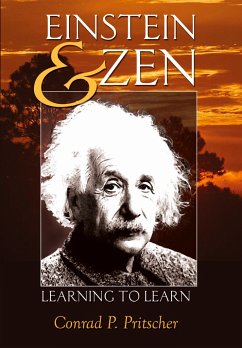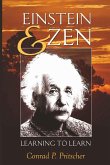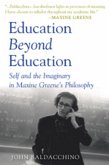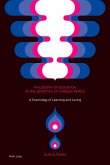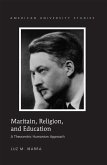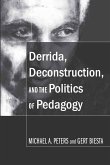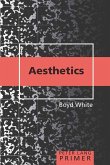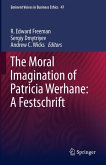This book makes a strong case for free schooling, comparing the mind of Albert Einstein - who said much - to Zen conscious practice, which says little but encompasses everything. Examining the work of brain researchers, neuroscientists, physicists, and other scholars to illuminate the commonalities between Einstein's thought and the Zen practice of paying attention to one's present experience, the book reveals their many similarities, showing the development of self-direction as a key to fostering compassionate consideration of others and to harmonious, semi-effortless learning and living. Examples demonstrate that students who choose to study what is interesting, remarkable, and important for them tend to become more like Einstein than students with the rigid school curricula; students who are free to learn often demonstrate empathy, and less rigid rule-following, while involved in the process of imaginatively becoming their own oracles and self-educators.
«[Full of] discoveries and sudden surprises, 'Einstein and Zen' overflows with life from start to finish. It will open new ways to imagine the art of teaching, and to live a life of learning.» (Bill Ayers, Distinguished Professor of Education and Senior University Scholar, University of Illinois, Chicago)
«Einstein's thoughts serve as the catalyst for Conrad Pritscher's creative analysis of what opens and closes opportunities to learn. His scathing critique of formal education as stifling creativity, teaching the young to be students and not learners, and rewarding compliancy strike at the heart of the problem in American education today. Einstein's 'mind-opening' questions stand in stark contrast to that seen in classrooms, even in our universities. Perhaps Pritscher's book can jump-start the next generation of educators to create a nation of learners.» (Thomas J. Switzer, Dean, Judith Herb College of Education, The University of Toledo)
«The insights are a great and exciting gift for all of us who take the time to read this inspiring and life-altering book. For this reason, this book is for educators but even more correct would be to say that this book is for everyone and anyone who wants to strive to be like Einstein, or to help others understand how they too can strive to be like what has become synonymous with wisdom and genius: Einstein. In a more holistic sense, this book is about more than mind but also about empathy, compassion and kindness, and so much more. Ultimately, the book offers all of us a better way to live by using Einstein and Zen as models of hope that we can and should all aspire towards.» (Carlo Ricci, Associate Professor, Nipissing University, Canada; Author and Editor, Journal of Unschooling and Alternative Learning, JUAL)
«'Einstein and Zen' begins one section in this Einsteinian provocation to open inquiry. Such passionate curiosity, Pritscher appreciates, exhibits humor and playfulness as well as compassion and commitment. Self-direction and thoughtful engagement with the world coincide in this Zen-like meditation on the meaning of education.» (William F. Pinar, Professor and Canada Research Chair, University of British Columbia)
«Schools and societies are beset with a host of pervasive problems - competitive self-centeredness, fragmentation and false dualities, obsessive quests for control and certainty, to name just a few. In ways fascinatingly philosophical and intriguingly practical, Pritscher's 'Einstein and Zen' acts as a compelling counter-force to these myopic and misguided priorities. Bringing together a wealth of scholarship and current research, Pritscher integrates significant strands of western and eastern practices, lighting a path of synthesis between meaningful self-direction on the one hand and empathic service to others on the other. Insistently thought-provoking, 'Einstein and Zen' simultaneously unsettles and inspires, mobilizes and guides educators and policy makerstoward the ideal of freedom within community. It is an impressive contribution that much merits our attention.» (Tom Kelly, Associate Professor of Education and Coordinator of the Adolescent and Young Adult Teacher Education Program, John Carroll University)
«Einstein's thoughts serve as the catalyst for Conrad Pritscher's creative analysis of what opens and closes opportunities to learn. His scathing critique of formal education as stifling creativity, teaching the young to be students and not learners, and rewarding compliancy strike at the heart of the problem in American education today. Einstein's 'mind-opening' questions stand in stark contrast to that seen in classrooms, even in our universities. Perhaps Pritscher's book can jump-start the next generation of educators to create a nation of learners.» (Thomas J. Switzer, Dean, Judith Herb College of Education, The University of Toledo)
«The insights are a great and exciting gift for all of us who take the time to read this inspiring and life-altering book. For this reason, this book is for educators but even more correct would be to say that this book is for everyone and anyone who wants to strive to be like Einstein, or to help others understand how they too can strive to be like what has become synonymous with wisdom and genius: Einstein. In a more holistic sense, this book is about more than mind but also about empathy, compassion and kindness, and so much more. Ultimately, the book offers all of us a better way to live by using Einstein and Zen as models of hope that we can and should all aspire towards.» (Carlo Ricci, Associate Professor, Nipissing University, Canada; Author and Editor, Journal of Unschooling and Alternative Learning, JUAL)
«'Einstein and Zen' begins one section in this Einsteinian provocation to open inquiry. Such passionate curiosity, Pritscher appreciates, exhibits humor and playfulness as well as compassion and commitment. Self-direction and thoughtful engagement with the world coincide in this Zen-like meditation on the meaning of education.» (William F. Pinar, Professor and Canada Research Chair, University of British Columbia)
«Schools and societies are beset with a host of pervasive problems - competitive self-centeredness, fragmentation and false dualities, obsessive quests for control and certainty, to name just a few. In ways fascinatingly philosophical and intriguingly practical, Pritscher's 'Einstein and Zen' acts as a compelling counter-force to these myopic and misguided priorities. Bringing together a wealth of scholarship and current research, Pritscher integrates significant strands of western and eastern practices, lighting a path of synthesis between meaningful self-direction on the one hand and empathic service to others on the other. Insistently thought-provoking, 'Einstein and Zen' simultaneously unsettles and inspires, mobilizes and guides educators and policy makerstoward the ideal of freedom within community. It is an impressive contribution that much merits our attention.» (Tom Kelly, Associate Professor of Education and Coordinator of the Adolescent and Young Adult Teacher Education Program, John Carroll University)

